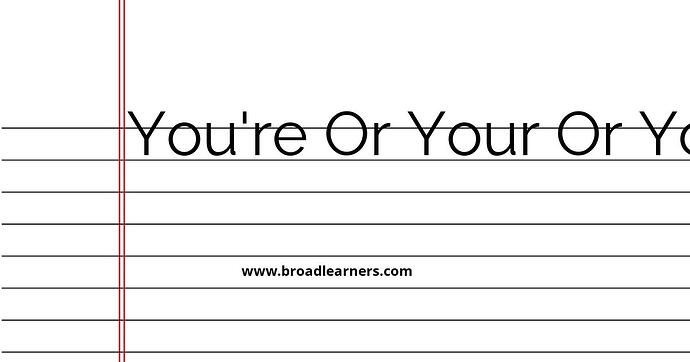'You're', 'your', and 'yours' are commonly confused words in English grammar. Understanding the difference between 'you're', 'your', and 'yours' is important to use them correctly in written and spoken English.
'You're' is a contraction of 'you are'. It is used to indicate that someone or something belongs to the second person, or to describe the second person.
'Your' is a possessive adjective. It is used to show ownership or belonging, specifically for the second person.
'Yours' is a possessive pronoun. It is used to indicate that something belongs to the second person, without referring to a specific noun.
Let's take a closer look at the meanings and usage of 'you're', 'your', and 'yours'.
| 'You're' | 'Your' | 'Yours' |
|---|---|---|
| The word 'you're' is a contraction of 'you are'. | The word 'your' is a possessive adjective. | The word 'yours' is a possessive pronoun. |
|
|
|
To remember the difference between 'you're', 'your', and 'yours', it can be helpful to remember that 'you're' is a contraction of 'you are', 'your' is a possessive adjective, and 'yours' is a possessive pronoun.
Here are some examples of correct usage:
- You're my best friend. (indicating a personal relationship)
- Is this your cat? (asking about ownership)
- The book on the table is yours. (indicating ownership)
Remembering the correct usage of 'you're', 'your', and 'yours' will improve your grammar and communication skills.
